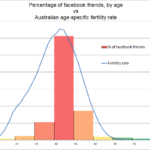It’s not the size of your budget, but how you use it that counts.

Education policy discussions focus almost exclusively on funding, and this election carries the stench of a pissing competition. However, based on OECD PISA findings there is no link between spending and outcomes, and more so, increased funding over the past 10 years has not shown improvements in student achievements¹.
Even if this weren’t the case, Australia is already among the top spenders in the world, with continuous funding growth going back decades.
School funding appears to only improve achievement up to the point where US $50,000 (ppp) is spent per student over the course of their schooling. Beyond this amount, spending does not seem to improve outcomes. Australia already spends double this amount, and is only surpassed by six countries. Of these six, only Switzerland performed better in PISA 2012.
(The following graphs are sourced from the OECD’s PISA:
What Makes Schools Successful? Resources, Policies and Practices – Volume IV Publication)

Much like Australia, most OECD countries increased expenditure in education in the period 2003 to 2012, yet the majority did not find improvements in student outcomes, with many (including Australia) going backwards.

So perhaps it’s time we elevate the conversation from “my education budget is bigger than yours” to “this is how we’ll improve education outcomes, and here is all the research which makes us confident it’s the best way to invest the public purse”.
The current discourse gives the impression that education is under constant attack. However, school funding is ever increasing. Public schools receive around 15% more per student now than they did 10 years ago (adjusted for inflation). Taking a historical view, public schools are now funded at twice the rate they were in the mid-90s and four times the rate of the mid-70s².
This is not to say that funding doesn’t need fixing, but I doubt it’s a case of needing more, rather better investment and distribution; for decisions to be made based on evidence, not political persuasion.
“What do we want?”
“Evidence based policies!!!”
“When do want them?”
“When they are good and ready, and the research is robust.”
[1] https://www.oecd.org/pisa/keyfindings/pisa-2012-results-volume-IV.pdf
[2] http://www.abs.gov.au/Ausstats/abs@.nsf/0/A75909A2108CECAACA2569DE002539FB?Open & http://www.pc.gov.au/research/ongoing/report-on-government-services/2016/childcare-education-and-training/school-education & http://www.abs.gov.au/ausstats/abs@.nsf/mf/6401.0

















Trackbacks/Pingbacks